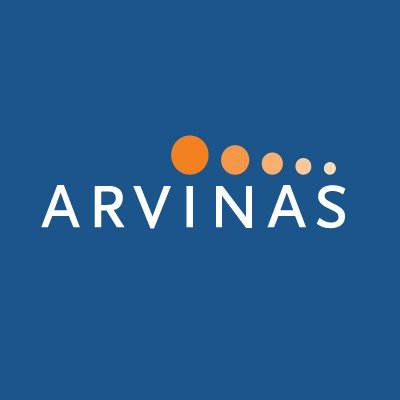
Arvinas Inc: A Period Full of Innovations and Challenges


Arvinas Inc's Progress and Challenges
Arvinas Inc (NASDAQ:ARVN) has made significant progress in its clinical development programs. The company has a wealth of data from early-stage clinical programs and promising preclinical results. Arvinas has a strong track record of converting previous preclinical results into clinical success and possesses a versatile platform that holds promise across various therapeutic areas.
The company has financial and strategic flexibility with sufficient cash to last until the second half of 2028. The commercial agreement with Pfizer and Vettde is growing, and the company is seeking potential partnerships alongside a new drug application currently under review by the FDA.
Arvinas is actively engaged in innovative therapies in oncology and neurology. The company has a deep pool of clinical candidates alongside ongoing trials in high-need areas. However, revenue in the third quarter of 2025 significantly decreased compared to 2024, primarily due to the expiration of a prior licensing agreement with Novartis.
General and administrative expenses have declined, largely due to the expiration of a lease and decreases in personnel and infrastructure costs. The reduction in Arvinas' research and development expenditures may also indicate a scaling back in the scope or scale of ongoing projects.
The company has yet to achieve the anticipated efficacy levels in its ARV 393 monotherapy trials. This situation suggests there may be challenges in reaching the desired clinical results. There are uncertainties regarding the timing and success of future clinical trials; some programs are still in early stages, with data awaited for further development.
Responding to questions about the distinctiveness of the company's BCL6 degrader program and its dosing profile, Noah Berkowitz stated that the BCL6 degrader is differentiated as an oral medication taken once daily. This program stands out for its ability to provide complete responses across various models.
In his remarks regarding the phase one trial of ARV 102 for Parkinson's disease, Noah Berkowitz addressed questions about the signals they are looking for, stating that a 28-day dosing regimen will be implemented, focusing essentially on generating biomarker data. However, he emphasized that clinical efficacy data is not expected during this short dosing period; their aim is to demonstrate companion interaction.
Questions were raised about the study of ARV 806 and its potential to overcome resistance mechanisms, with Angela Kaai indicating that resistance is being examined in a negative context and demonstrating sustained pressure on KRAS G12D. Noah Berkowitz mentioned that although the current phase one study excludes patients previously treated with KRAS inhibitors, future updates may target strengthened populations.
Information regarding ARV 102’s expectations for CSF degradation has also been provided. Noah Berkowitz stated that they will share LARK 2 degradation data upon completion of the expanding dose study, with updates anticipated to show significant degradation.
Finally, concerning how ARV 806 will overcome gastrointestinal tolerance issues and elevated liver enzyme problems experienced with other G12D inhibitors, Angela Kaai stated that ARV 806 binds to both active and passive forms of KRAS G12D, making it much stronger than existing clinical mechanisms. Noah Berkowitz emphasized that this strategy aims to achieve significant degradation while reducing side effects.
```.png)
Yakında Tüm Platformlarda
Sizlere kesintisiz haber ve analizi en hızlı şekilde ulaştırmak için. Yakında tüm platformlarda...




.png)